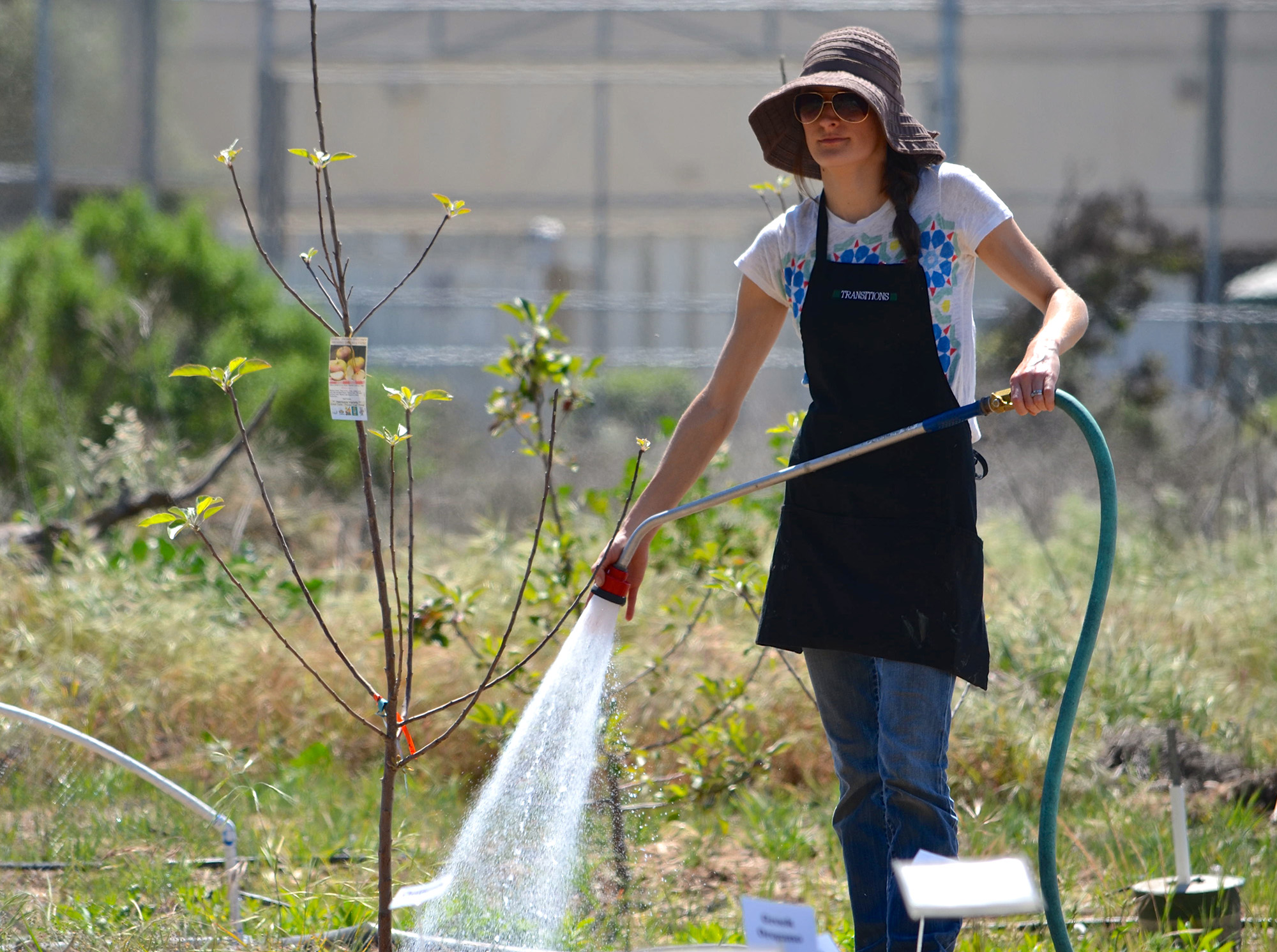Dirt Therapy Program Looks to County for Budget Dust
Supervisors Get Earful of Good News on Mental Health

For county supervisors, it’s become a rite of spring. Every April — without fail — the supervisors find themselves besieged by Santa Barbara’s increasingly well-organized community of mental-health activists, passionately demanding some small amount of money for some micro-program that would otherwise sink. It’s all part of the supervisors’ annual dress rehearsal for the multimillion-dollar budget decisions they have to make in June.
This year, the star of this show was a farm-based program called Growing Grounds Farm — little known outside Santa Maria — which every year pays about 50 severely mentally ill clients to get their hands dirty, working in the fields, growing flowers and vegetables, which are sold from the organization’s stand every Thursday. Technically, what Growing Grounds — which originated in San Luis Obispo County — offers is known as “horticultural therapy.” Frank Ricceri, who runs the program, prefers to call it “dirt therapy.” And all he’s asking for, he said, is “a little budget dust.”
Translated, Ricceri is asking the county supervisors to find $150,000 in the sock drawer of the $120 million the county’s Department of Behavioral Wellness will spend. Without it, Ricceri warned, his program — now experiencing waning support from private foundations — could spring a serious leak.
A couple of former clients addressed the supervisors directly, describing their past tailspins with depression, dysfunction, and attempted suicides. Both speakers credited the care they received at Growing Grounds for helping them turn their lives around. One, in fact, is currently employed by the Department of Behavioral Wellness. She declined to have her name used, citing the stigma people with serious mental-illness challenges face.
At Growing Grounds, she said, she was accepted with no such judgment. The staff was caring and compassionate, she said, but they also expected her to perform. Working in the soil brought her into contact with fresh air, sunshine, birds, and nature, she said. She worked with people in the same boat. It gave her a sense of accomplishment; it emboldened her to believe she could get a job. The more she did, the more confident she became. “I needed to be useful,” she said, “to connect with others.” When she exceeded the three minutes allotted to speak, board chair Steve Lavagnino urged her to go on. “That won the award for the best public comment, ever,” Lavagnino gushed.
No board action was taken, but based on supervisors’ comments, the money will be found.
That was just one new program to win accolades in dealing with the needs of mentally ill people. The supervisors were urged by mental-health advocates to secure funding for a new co-response unit, which teams a mental-health crisis worker with a sworn deputy to deal with calls. The program began as a pilot project last fall. Earlier this year, it appeared it might not survive March because of staffing shortages within the Sheriff’s Office. It got a reprieve until June.
But the program got a big kiss from high-ranking administrator and former undersheriff Barney Melekian and county mental-health czar Alice Gleghorn. Melekian noted that of the 115 calls for service the co-response teams responded to, only four wound up in arrests. The other cases, he said, were diverted away from the criminal justice machine that too often puts mentally ill people behind bars.
This issue — the criminalization of mentally ill people — has been designated a high priority by County Executive Mona Miyasato, who pointedly snatched Melekian up the second he announced his retirement from the Sheriff’s Office last year. Melekian, in a prior incarnation, had worked in Washington, D.C., lobbying Congress to improve law enforcement options for dealing with mentally ill people.
The past budget year, supervisors authorized funding to hire Dr. Cherylynn Lee to head the Sheriff’s Behavioral Sciences Unit, where she’s in charge of training all law enforcement personnel in the gentle art of de-escalation when confronting someone in the midst of a mental-health crisis. After Lee gave her presentation to the board, Supervisor Joan Hartmann stated, “I sleep better at night hearing about that program.”
Supervisor Peter Adam took exception, arguing that he has yet to see any data indicating how many people are actually getting better because of all the treatment they receive at government expense.











